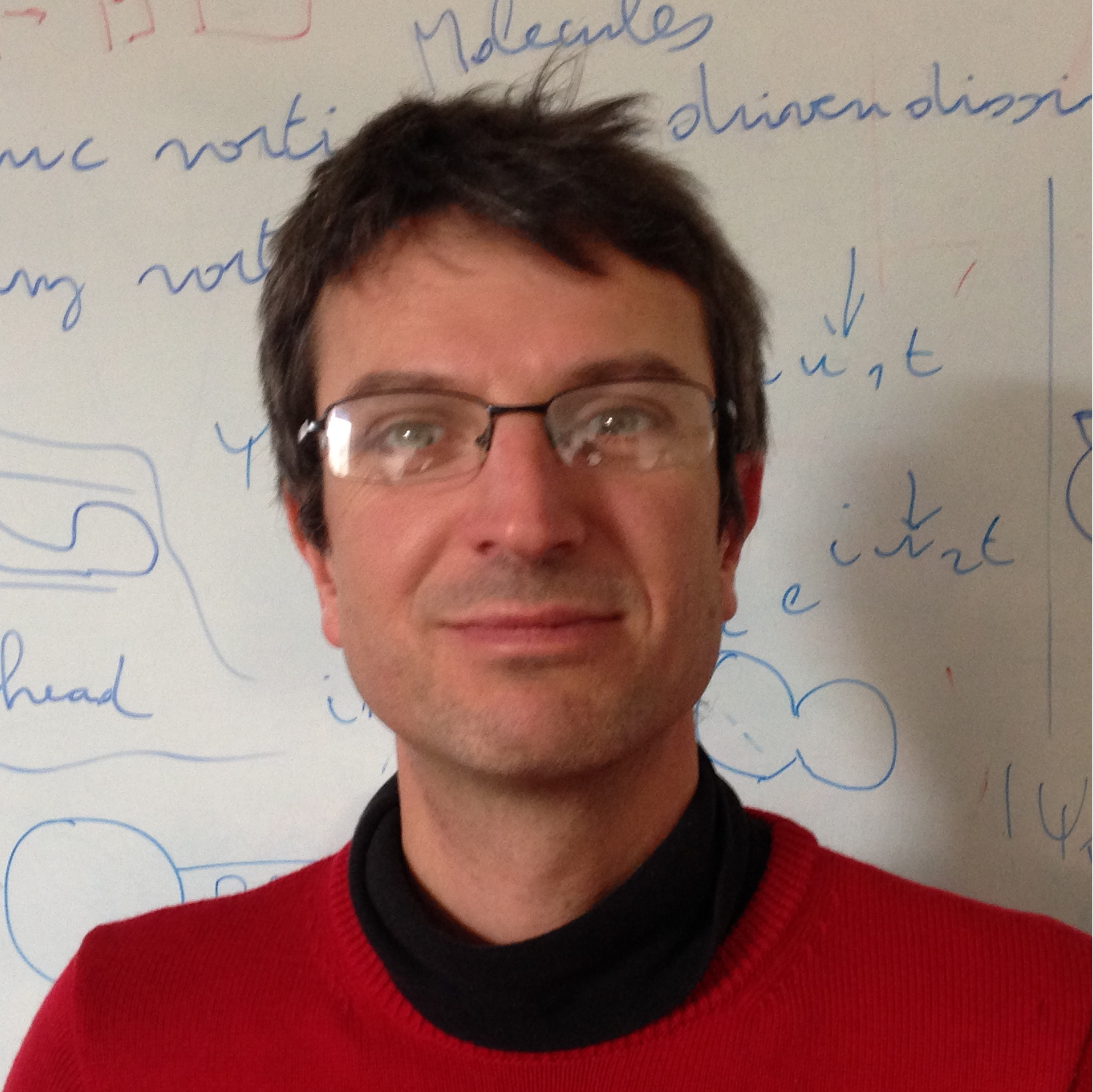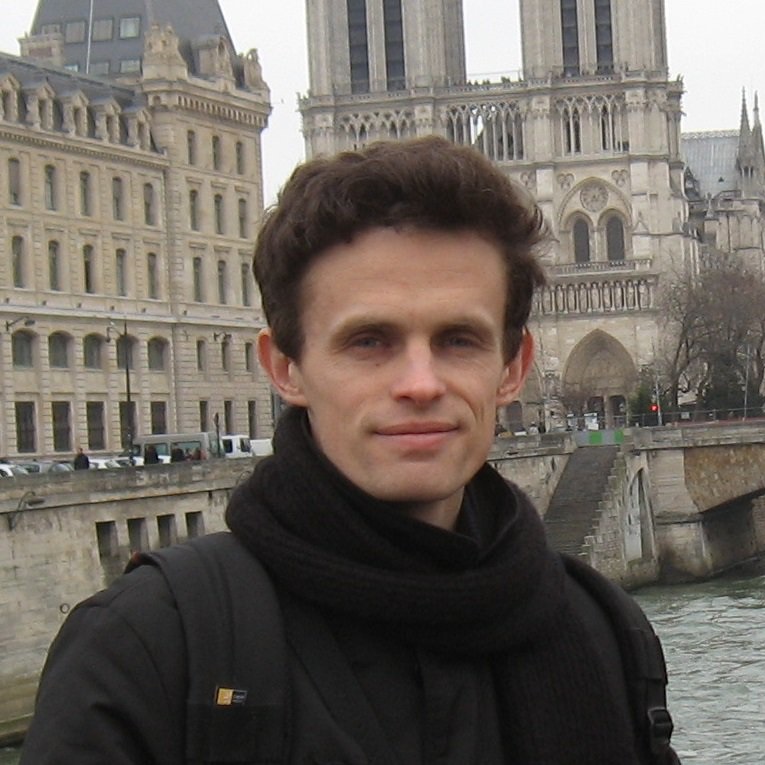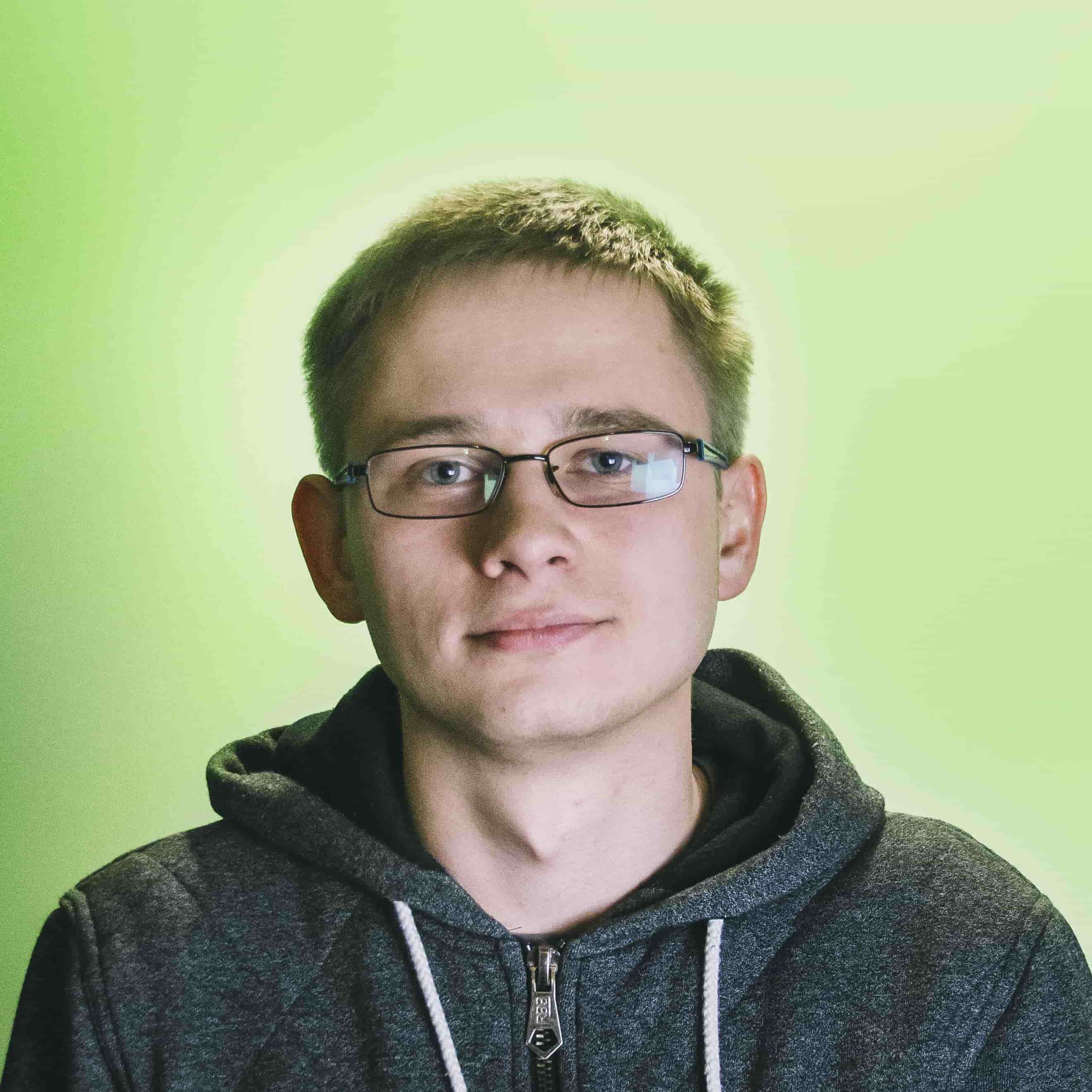RESEARCH TOPICS
|
Topological photonics Topology has deepened our understanding of physics and enlarged the spectrum of possibilities. Topological photonics deals mostly with periodic systems with spin-orbit coupling. Topologically non-trivial system exhibit edge states, which are often associated with chiral (one-way) propagation. This is particularly useful for topological optical isolators and topological lasers, protected against reflections.
|
||||||
|
Quantum fluids of light Strong light-matter coupling is responsible for the exceptional non-linear interactions of resulting quasi-particles, exciton-polaritons. Their bosonic nature allows observing their Bose condensation. A condensate of polaritons is thus an interacting quantum fluid of light, where many quantum phenomena (superfluidity, quantum vortices, solitons) can be observed at a macroscopic scale.
|
||||||
|
Analogue physics Different physical systems can be described by the same mathematics. This allows to study one of them to understand the other. This is the goal of analog physics, including such topics as analog gravity, early Universe simulations, and others. Even topological photonics can be considered as an example of analog physics! |
||||||
GROUP MEMBERS
| Permanent members | ||||
 |
Guillaume Malpuech CNRS Senior Researcher, head of the group Guillaume's research topics are:
|
|||
 |
Dmitry Solnyshkov Professeur, HDR, Université Clermont Auvergne, Institut Universitaire de France Dmitry's research fields:
|
|||
| PhD Students | ||||
|
Matthieu Finck PhD student (2023-2026) Matthieu is currently working on:
|
||||
|
Maria Vittoria Maggi PhD student (2024-2027) Maria is currently working on:
|
||||
 |
Pavel Kokhanchik PhD student (2021-2024) Pavel is currently working on:
|
|||
| Post-doctoral researchers | ||||
|
Daniil Bobylev Post-doc (2023-2025) Daniil is currently working on:
|
||||
 |
Olha Bahrova Post-doc (2024-2025) Olha is currently working on:
|
|||
GROUP PHOTO
 |
||
 |
||
| See more photos... |
|
FORMER MEMBERS
Marian Zamfirescu (PhD student 2000-2003) Fabrice Laussy (PhD student, 2002-2005) Ivan Shelykh (Post Doc, 2002-2005) Pierre Bigenwald (Assistant Professor, 2001-2006) Alexey Kavokin (Professor, 1998-2005) Henni Ouerdane (Post Doc, 2006-2008) Robert Johne (PhD student 2006-2009) Goran Pavlovic (PhD student 2007-2010) Thomas Weiss (PhD student, 2008-2011) Hugo Flayac (PhD student, 2009-2012) Hugo Terças (Post Doc, 2012-2014) Dmitry Vishnevskii (PhD student, 2010-2013) Berihu Teklu Gebrehiwot (Post Doc, 2015) Anton Nalitov (PhD student, 2012-2015) Olivier Bleu (PhD student, 2015-2018) Sergei Koniakhin (PhD student, 2017-2020) Charly Leblanc (PhD student, 2019-2022) Ismael Septembre (PhD student, postdoc 2020-2024) |
CHAIR OF EXCELLENCE
Nikolay Gippius (Professor, 2006-2010)
LONG TERM VISITORS (2001 − 2011)
Kirill Kavokin (Researcher) Yuri Rubo (Professor) Sergey Tikhodeev (Professor) Natalia Maslova (Professor) Pavlos Lagoudakis (PhD student) Mikhail Glazov (PhD student) Nikolai Galkin (PhD student) Sergey Gavrilov (PhD student) Valentin Nikolaev (Post Doc)
|
NEWS
| 2024 |
In 2024, we have published 8 papers, including 3 PRL, 1 JACS, 1 Optica, 1 LPOR, 1 PRB and 1 Comptes Rendus Physique.
|
|||
|
In December 2024, Pavel Kokhanchik has successfully defended his PhD thesis! Congratulations and best wishes for the future career!
|
||||
|
Our work is on the cover of JACS! https://pubs.acs.org/toc/jacsat/146/45
|
||||
|
A new PhD student, Maria Vittoria Maggi, has joined our group in the framework of the ANR project Moire++
|
||||
|
A new post-doc, Dr. Olha BAHROVA, has joined our group in the framework of the ANR NEWAVE project.
|
||||
|
Dr. Septembre won a prize for his thesis at the competition "Prix Jeune Chercheur", after which he has been recruited as a post-doc at the University of Siegen.
|
||||
| 2023 |
In 2023, we have published 7 papers, including 1 JACS, 5 PRB and 1 Advanced Photonics.
|
|||
|
A new post-doc, Dr. Daniil Bobylev, has joined our group in the framework of the TOPOLIGHT project. |
||||
| A new PhD student, Matthieu Finck, has joined our group. Matthieu has a Master of Mathematics (and Agrégation as well) and works on a joint thesis between Physics and Mathematics, supervised together with Jérôme Dubois from LMBP. | ||||
|
Our PhD student Ismaël Septembre has defended his thesis! We wish him good luck in his scientific career! |
||||
|
2022 |
12/12/2022 |
On October 14, our PhD student Charly Leblanc successfully defended his thesis work entitled "Topology and Quantum Metric in the exploration of photonic Dirac systems". Congratulations, Charly! We wish you all the best in your career and your life! Charly has already started to work as a postdoc in the Advanced Photonics Lab, CNR Nanotec, Lecce, Italy under the supervision of Daniele Sanvitto. Keep an eye on his new achievements! |
||
|
|
12/12/2022 |
We have published a lot of work in the last few months! Here are their highlights: Another Physical Review Letters paper discusses the control of the lattice couplings by utilizing Rashba-Dresselhaus spin-orbit coupling. As consequence, we show how to control the topology of the SSH chain, and construct XY and Harper-Hofstadter models. A new Physical Review Letters paper reports the first experimental observation of perfect Klein transmission in a 2D photonic system (photonic graphene) at normal incidence and measures the angular dependence. Our Physical Review Applied paper experimentally demonstrates and discusses the difference between a ridge polariton laser and a conventional edge-emitting ridge laser operating under electron-hole population inversion. In our Nature Communications paper, we investigate an annihilation of exceptional points issued from different Dirac points (valley). The studied platform is a liquid crystal microcavity with voltage-controlled birefringence and TE-TM photonic spin-orbit-coupling. In the Advanced Science paper, helical polariton lasing from topological valleys of an organic anisotropic microcrystalline cavity based on tailored local nontrivial band geometry is demonstrated. The significantly enhanced chiral characteristics are achieved thanks to the nonlinear relaxation process. |
||
|
|
03/08/2022 |
Our new paper in Physical Review Letters is out! The work covers the formation of the exciton-polariton condensate in staggered polariton graphene. Both spontaneous or controllable formation of valley-polarized domains occurs with the possibility of creating a chiral current along the domain wall by selecting a single valley. |
||
|
|
12/07/2022 |
Our new work was published in Nature Photonics. We demonstrate a spin-selective strong light-matter coupling regime and as a consequence unusually strong optical nonlinearity in a monolayer MoSe2. |
||
|
|
14/06/2022 |
Our new paper was published in Physics Letters A. The name of the work is "Love might be a second-order phase transition". We say no more, just enjoy the paper! |
||
|
|
11/05/2022 |
A new paper was published in Nature Physics. The work demonstrates the formation of topological gap solitons in a driven-dissipative version of the Su–Schrieffer–Heeger model and discusses their physics. |
||
|
|
18/03/2022 |
Our paper was published in Photonics Research (Optica Publishing Group). We studied photonic graphene created by means of electromagnetically induced transparency. By varying the ratio between the real and imaginary components of the refractive index we managed to control the state of the probe beam exhibiting a hexagonal or honeycomb intensity profile. Finally, we demonstrated the Talbot effect of the transmitted probe patterns. |
||
|
18/03/2022 |
Our paper was published in the Journal of Applied Physics. We explored an open-access microcavity enabling tunability of the light-matter coupling strength and found that the lowest condensation threshold always occurs at a fixed depth of energy trap between the exciton reservoir and the polariton ground state. This result fits well with the existing theory of exciton–exciton scattering into the condensate state in the driven-dissipative polaritonic system. |
|||
|
17/02/2022 |
The presentations of group members have been accepted to the PLMCN22 conference which will take place in Varadero, Cuba (10-16 April): Ismaël Septembre, Annihilation of exceptional points from different Dirac valleys, oral talk; Charly Leblanc, Universal semiclassical equations based on the quantum metric, poster presentation; |
|||
| Update 17/03/2022 | Pavel Kokhanchik, Control of SSH chain topology by Rashba-Dresselhaus spin-orbit coupling, poster presentation. | |||
|
17/02/2022 |
New preprint on arXiv. The work is devoted to the theoretical study of exciton-polariton condensation in staggered polariton graphene with the formation of valley-polarized domains following the Kibble-Zurek scenario. The appearance of topologically-protected chiral current at the domain walls was observed. |
|||
|
21/01/2022 |
New preprint on arXiv. The work discusses the differences between a GaN based ridge polariton laser and a semiconductor edge-emitting laser. |
|||
|
01/2022 |
We have updated our website! Now we will regularly publish the latest news, publications, projects, and open positions of our group. |
|||
|
2021 |
Ismaël Septembre received a young researcher award for his presentation at the international conference OECS17. |
|||
RESEARCH PROJECTS
|
2022 − 2025 |
NEWAVE (ANR project) Exploring new operation modes of micro- and nano-lasers for integrated photonics, based on polaritonic quantum fluids of light in GaN waveguides. |
||
|
2021 − 2025 |
TopoLight (Horizon 2020 EU Research and Innovation program) Soft matter platform for optical devices via engineering of non-linear topological states of light. |
||
|
2020 − 2024 |
GaNeXT (ANR Labex French project) The project focuses on the research of element III nitrides (BAlInGaN), wide bandgap semiconductors whose intrinsic properties predispose them for emission in the visible/UV range and use as the electronic components working at high temperature, high frequency, and in harsh environments. GaNeXT combines electronic and photonic approaches for studying these materials. |
||
OPEN POSITIONS
|
We have an open postdoc position in the framework of the TopoLight project. Please find more details and apply by the link. For more information about open positions, feel free to contact Guillaume (This email address is being protected from spambots. You need JavaScript enabled to view it.) and Dmitry (This email address is being protected from spambots. You need JavaScript enabled to view it.) directly. |
PUBLICATIONS
|
Publications can be downloaded as a pdf file via the link (updated 20/01/2022). |







